Over the Years
Home > Over the Years > Over the Fiscal Years (2020 APR -) > Seven Medical Professionals from Latvia, Korea and U.S. Received for Training.
Seven Medical Professionals from Latvia, Korea and U.S. Received for Training.
HICARE invited 6 doctors and a MSN for training on the research of Molecular biology and the medical treatment of radiation-exposed.
Names and Titles:
1 Marija Burčeņa (Latvia)
MD, Researcher, Tutor, Department of Occupational and Environmental Medicine, Riga Stradins University
2 Jeonggil Kim (Korea)
MD, Armed Forces Daejeon Hospital, Rehabilitation Medicine
3 Jaehack CHA (Korea)
Orthopedist, Armed Forces Hampyeong Hospital
4 Jonathan Alke (U.S.)
Director, Emergency Medical Department, Seaton Medical Center
5 Theodore B. Moore (U.S.)
Professor and Chief, Division of Pediatric Hematology and Stem Cell Transplant, UCLA
6 Lori Kaneshige (U.S.)
MSN Coordinator, Hematology/Oncology Pediatrics, Kapi’olani Medical Center for Women & Children
7 Yasuko Fukuda (U.S.)
Managing partner Pediatrician, Pacific Pediatrics Medical Group
Period of Training:
Trainee 1
November 13 to December 7, 2018
Trainee 2
December 3 to 7, 2018
Training Organization (in order of visits):
< November 13 to 30 > Trainee 1
Radiation Effects Research Foundation
< December 3 to December 7 > All of the trainees
Hiroshima Red Cross Hospital & Atomic-bomb Survivors Hospital,
Hiroshima University Research Institute for Radiation Biology and Medicine,
Radiation Effects Research Foundation,
Funairi Mutsumi-en (Nursing Home for A-bomb survivors),
Hiroshima Atomic Bomb Casualty Council,
Hiroshima University Hospital (Advanced Emergency and Critical Care Center),
Hiroshima Peace Memorial Museum, etc.
Training Course:
Assessment of biological effects of radiation
Briefings at radiation-related institutions
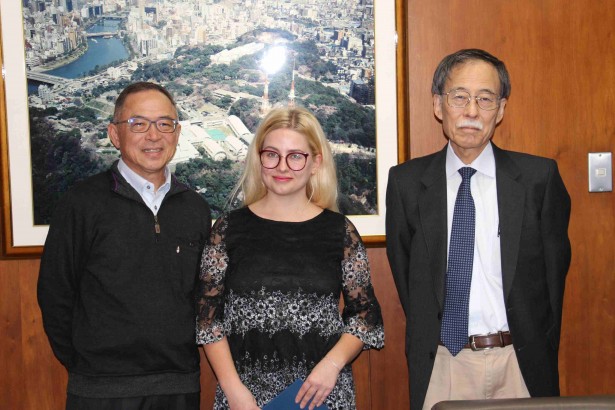
Dr. Burcena (center) received a certificate from Chairman Niwa(right), RERF. The left is her tutor, Dr. Hayashi
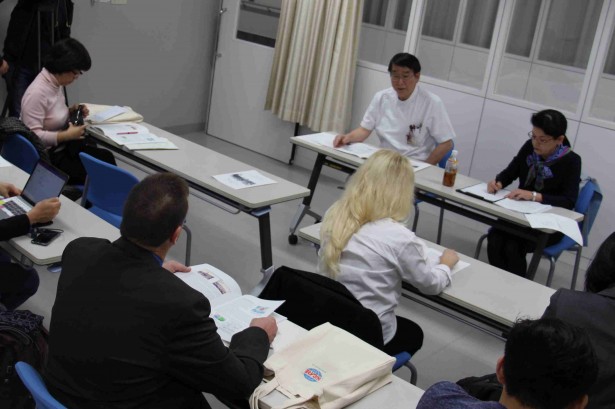
With Dr. Kaseda (center back), vice president of Hiroshima Red Cross Hospital & Atomic-bomb Survivors Hospital
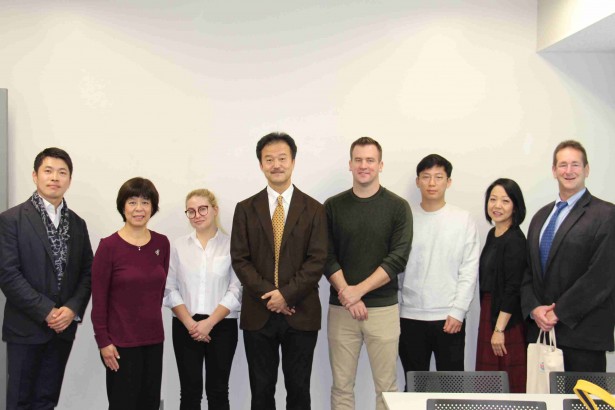
With Prof. Tashiro (fourth from left), Hiroshima University Research Institute for Radiation Biology and Medicine
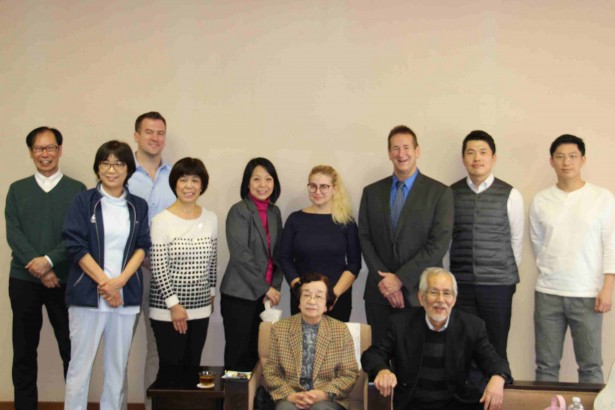
With Manager Ochi (right in front row) and A-bomb survivor (left in front row) at Funairi Mutsumi-en Nursing Home
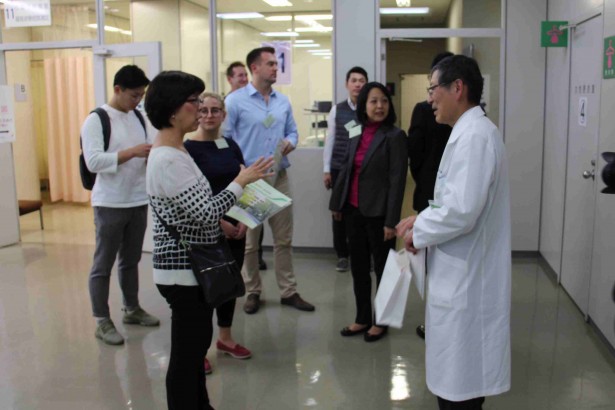
With Dr. Maeda (right), director of Health Management & Promotion Center, Hiroshima Atomic Bomb Casualty Council
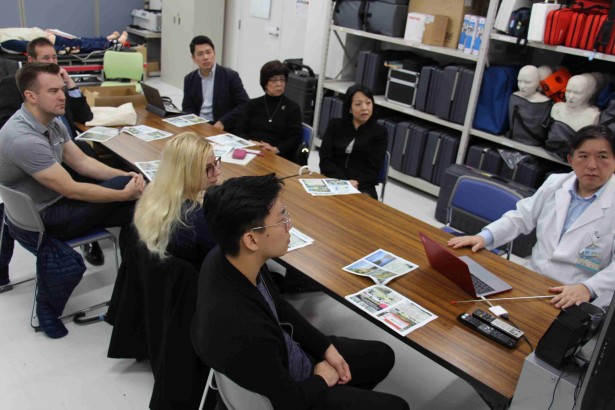
With Prof. Hirohashi (right), Advanced Emergency and Critical Care Center, Hiroshima University Hospital
Feedback:
- My previous knowledge of the effects of radiation was limited to Chernobyl and its victims – something we are still researching to this day. The training helped me acquire a much deeper understanding of radiation and its effects on the human body: not only on its organs and systems, but also cells – something I had only previously known in theory, I now learned in practice.
It was also a life-changing experience – to hear about the effects of radiation from people who actually experienced it – A-bomb survivors, doctors who have worked with victims, and who were the first to respond in acute situations (e.g. Fukushima).
- Although I have read quite a bit about the atomic bomb and its impact, this experience is unique and there is nothing comparable as it is a fusion of all of these aspects from the molecular to the cellular to the human to epidemiologic and psychologic.
- As my area of scientific expertise is in bone marrow transplant and childhood cancer, I plan to develop a lecture that combines what I have learned through HICARE about the late effects from the radiation exposure from the atomic bomb with what we know about childhood therapeutic medicinal radiation exposure for leukemia treatment and review the effects of radiation from diagnostic exposure, to therapeutic treatment exposure to exposure from the atomic bomb.
- First, as a military officer, as Dr. Hirohashi who works in Hiroshima University Hospital mentioned, I think it is important to have a powerful control tower in a national disaster situation.
Also, as a rehabilitation physician, I think that the integrated management of elderly survivors is important. I thought government should support them not only in the medical problems that arise during the aging process, but also in various aspects, from health screening, home nursing care, and vocational support.
- When radiation disaster occur in Korea, I participate in a team of reaction about radiation disaster. In this case, I can more understand about situation and know exactly what I have to do.
- This HICARE experience was thoughtfully prepared to include a broad, but thorough overview of information regarding the A-Bomb experience and subsequent radiation exposure effects. Having additional insight from the hibakusha and nursing home perspective was so emotionally overwhelming.
Knowledge of the long term effects of radiation exposure is especially valuable in treatment of pediatric cancer patients. This resonated with our current practice of minimizing use of radiation therapy in young patients and deepened my understanding of the long term effects and timeframes in which they should be monitored.




